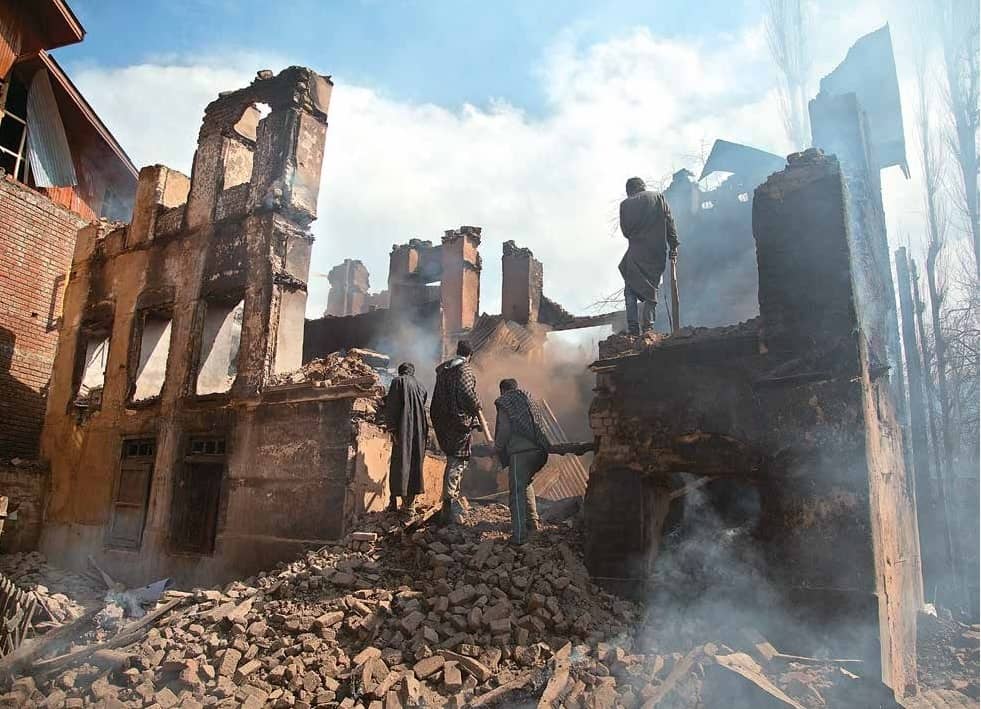
CIRCA 2014. Halfway through election campaigning, it occurred to me that the issues of azaadi, autonomy and Article 370 were never raised in any of the meetings, anywhere. Not once was it asked of me where I stood on these. Even in private conversations with people—farmers, shopkeepers, traders, and agricultural labourers—the National Conference’s demand for ‘autonomy’ or the PDP’s concept of ‘self-rule’ were never mentioned, even in passing.
The reason for this, it turned out, was simple: people didn’t see these mainstream parties as having any role in the resolution of the Kashmir issue. These parties were only about governance and, in the words of John Lewis, the civil rights pioneer, about “good trouble”. Nothing more. Nothing less either! Coexisting with this was the palpable separatist sentiment that one could sense and see. The families of militants—dead or alive—were respected. They were invariably seen as the “village elders” who exercise influence that comes with upward social mobility. Over the years, socially, militancy had become a rite of passage.
The same people who would attend election rallies would also attend the funerals of militants. In their mind there seemed no conflict between the two. The former was an individual obligation born out of material needs, while the latter was a collective desire engendered by a certain understanding of political history. These two worlds were not reconciled with each other but inevitably coexisted. In between, of course, there were occasions of confrontation.
هذه القصة مأخوذة من طبعة August 10, 2020 من Outlook.
ابدأ النسخة التجريبية المجانية من Magzter GOLD لمدة 7 أيام للوصول إلى آلاف القصص المتميزة المنسقة وأكثر من 9,000 مجلة وصحيفة.
بالفعل مشترك ? تسجيل الدخول
هذه القصة مأخوذة من طبعة August 10, 2020 من Outlook.
ابدأ النسخة التجريبية المجانية من Magzter GOLD لمدة 7 أيام للوصول إلى آلاف القصص المتميزة المنسقة وأكثر من 9,000 مجلة وصحيفة.
بالفعل مشترك? تسجيل الدخول

Layers Of Lear
Director Rajat Kapoor and actor Vinay Pathak's ode to Shakespeare is an experience to behold

Loss and Longing
Memories can be painful, but they also make life more meaningful

Suprabhatham Sub Judice
M.S. Subbulakshmi decided the fate of her memorials a long time ago

Fortress of Desire
A performance titled 'A Streetcart Named Desire', featuring Indian and international artists and performers, explored different desires through an unusual act on a full moon night at the Gwalior Fort

Of Hope and Hopelessness
The body appears as light in Payal Kapadia's film

Ruptured Lives
A visit to Bangladesh in 2010 shaped the author's novel, a sensitively sketched tale of migrants' struggles

The Big Book
The Big Book of Odia Literature is a groundbreaking work that provides readers with a comprehensive introduction to the rich and varied literary traditions of Odisha

How to Refuse the Generous Thief
The poet uses all the available arsenal in English to write the most anti-colonial poetry

The Freedom Compartment
#traindiaries is a photo journal shot in the ladies coaches of Mumbai locals. It explores how women engage and familiarise themselves with spaces by building relationships with complete strangers

Love, Up in the Clouds
Manikbabur Megh is an unusual love story about a man falling for a cloud. Amborish Roychoudhury discusses the process of Manikbabu's creation with actor Chandan Sen and director Abhinandan Banerjee